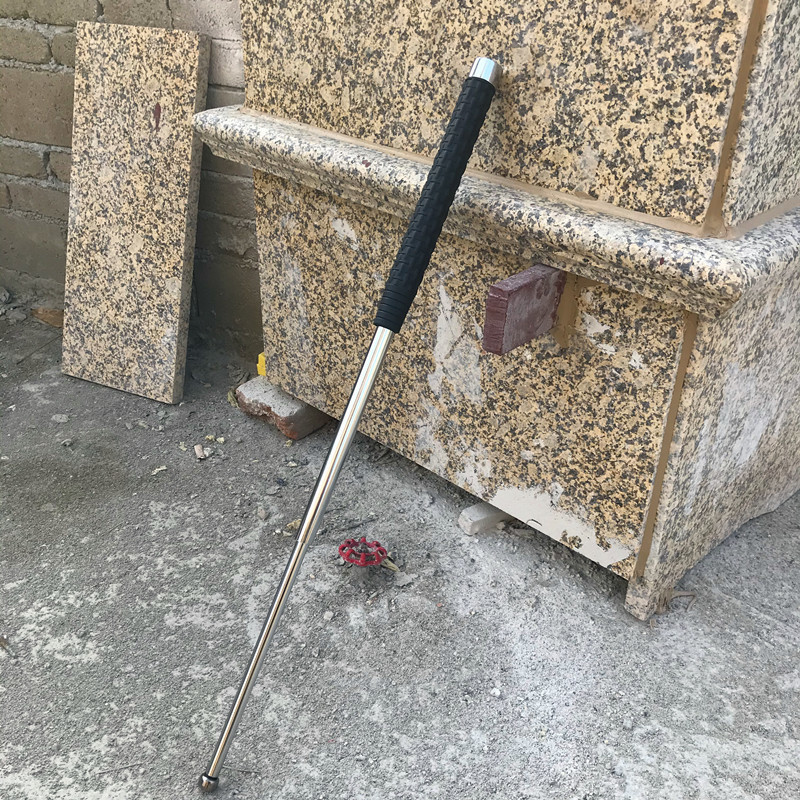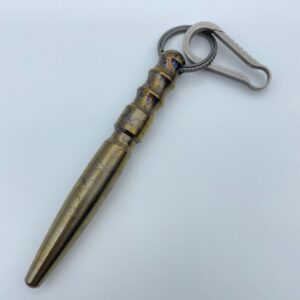No products in the cart.
Are Expandable Batons Legal in Your State? [2025] Laws Explained
1. Introduction: The Evolving Legal Landscape
Expandable batons (colloquially called “tactical batons” or “ASP batons”) occupy a complex niche in U.S. weapon regulations. Unlike firearms with federal oversight, their legality shifts dramatically across state lines—from unrestricted ownership in Idaho to felony possession in Massachusetts. Recent FBI crime data reveals a 17% surge in civilian defensive baton usage since 2022, intensifying legislative scrutiny. This 2025 guide dissects current statutes through six critical legal dimensions.
2. Federal Baseline: What Uncle Sam Allows
No federal statute explicitly prohibits expandable batons, but two key frameworks govern them:
- Switchblade Knife Act Interpretation: Some courts classify batons as “gravity knives” due to inertial deployment mechanisms.
- Interstate Commerce Restrictions: Shipping batons across state lines becomes illegal if the recipient resides where they’re prohibited.
The Bureau of Alcohol, Tobacco, Firearms and Explosives (ATF) maintains neutrality, treating batons as non-firearm defensive tools unless modified with spikes or blades.
3. Prohibition States: Absolute Bans
3.1 Northeast Corridor Restrictions
Seven states criminalize civilian baton possession entirely:
- Massachusetts: Classifies them as “dangerous weapons” (MGL c.269 §10(b))
- New York: Illegal under NYC Admin Code §10-131(b) unless carried by law enforcement
- Connecticut: “Bludgeon” ban applies to collapsible batons (CGS §53-206)
Violations trigger felony charges (up to 5 years imprisonment in NY), with exceptions only for:
Active-duty police
Military personnel on duty
Licensed security guards with agency authorization
3.2 California’s Nuanced Stance
While Penal Code §22210 prohibits sales, ownership remains legal if:
- Baton length when collapsed is <16.5 inches
- Carried openly in locked containers during transport to training facilities
4. Conditional Legality States: Permits and Parameters
4.1 Concealed Carry Permit States
Twenty-three states allow baton carry with concealed weapon permits (CWPs):
| States | Key Requirements | Length Limits |
|---|---|---|
| Florida | Valid CWP + “defensive tools” endorsement | ≤26″ extended |
| Texas | LTC certification with baton module | No restriction |
| Virginia | Separate baton permit application | ≤24″ extended |
Permit applications typically require:
- 8-hour NRA-certified baton safety course
- Background checks excluding misdemeanor assault convictions
4.2 Open Carry Authorization
Eleven states permit open carry without permits but enforce usage constraints:
- Arizona: Legal for self-defense but banned at public gatherings >50 people
- Ohio: Requires fluorescent orange grip for civilian identification
- Georgia: Prohibited within 1,000 feet of schools regardless of carry method
5. Unrestricted States: Minimal Regulation
5.1 Constitutional Carry States
Fourteen states impose no ownership restrictions:
- Montana
- Wyoming
- Kansas
- Idaho
Critically, “unrestricted” doesn’t mean “unregulated”:
Tennessee bans baton use during felony commission (enhanced sentencing)
Alaska prohibits modifications like weighted end caps
5.2 Tribal Jurisdictions
Native American reservations operate under sovereign weapon codes:
- Navajo Nation requires baton registration ($15 fee)
- Cherokee lands limit batons to residents with ≥25% tribal blood quantum
6. Compliance Protocol: Avoiding Legal Pitfalls
6.1 Transporting Across State Lines
Use a three-layer compliance protocol when traveling:
- Research: Verify destination state’s “deadly weapon” definitions
- Storage: Keep batons disassembled in locked cases separate from grips
- Documentation: Carry training certificates and sales receipts
6.2 Retailer Liability Shields
Major distributors like DefenseGear USA now implement:
- Geo-fenced online sales blocking prohibited zip codes
- Mandatory legal waivers acknowledging local statutes
- State-specific baton modifications (e.g., California-compliant length locks)
7. Enforcement Trends: 2025 Legal Forecast
Three emerging legislative patterns suggest upcoming changes:
- Microstamping Requirements: Proposed bills in Illinois would require batons engraved with serial numbers traceable to owners
- Training Mandates: Colorado’s HB 2025-1147 would mandate annual 4-hour refresher courses
- Ethical AI Monitoring: Pilot programs in Nevada use traffic cameras with weapon-detection algorithms to identify illegal baton carry
Case Study: Minneapolis PD now issues $250 citations for improper baton storage in vehicles after a 2024 incident where an unsecured baton pierced a windshield during collision.
Conclusion: Your Action Checklist
Before purchasing or carrying an expandable baton in 2025:
✅ Confirm your state’s classification at [State Attorney General Portals]
✅ Complete jurisdiction-specific training (min. 8 hours)
✅ Install manufacturer compliance updates (e.g., geolocation locks)
❌ Never conceal in permit-mandated states without documentation
Lawmakers increasingly treat batons like firearms in regulatory terms—expect stricter accountability frameworks by 2026. When in doubt, consult a weapon law specialist via the National Association of Criminal Defense Lawyers’ Batons Legal Helpline (888-555-0215).
(Legal Disclaimer: This article constitutes informational guidance only. Consult licensed attorneys for state-specific advice.)










